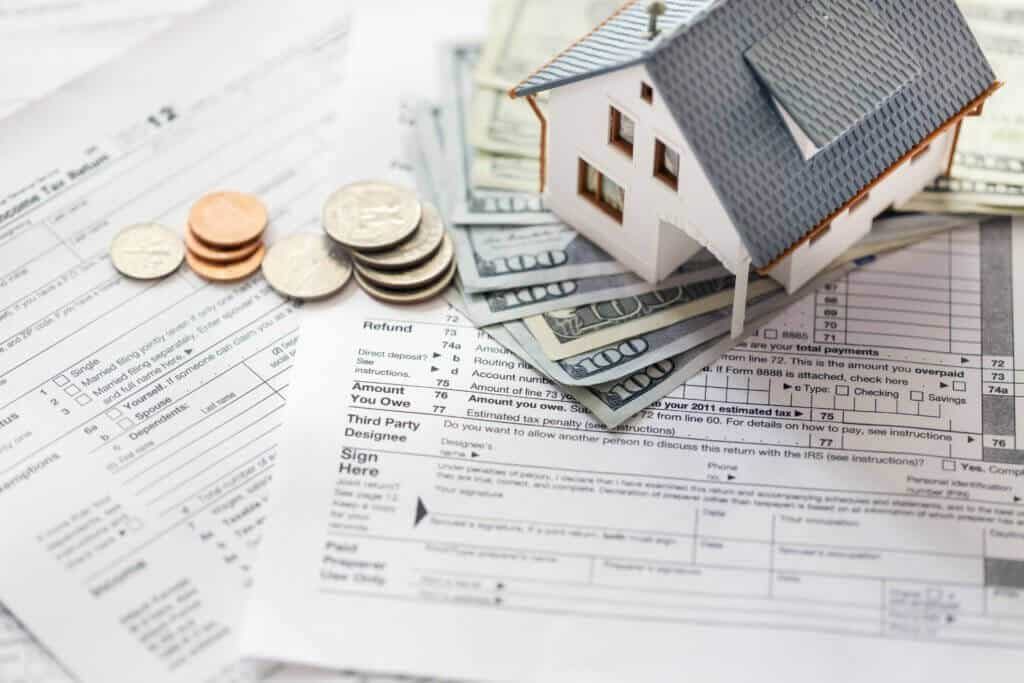Whether you are buying a home for the first time, or are inheriting a home, you are likely aware that you will have to pay money in the form of tax to the government on a constant basis. This article will cover inheriting a house and the taxes you need to know about.
The most common type of homeowner’s tax is determined by your county’s title bureau, assessor, or auditor. The title bureau ultimately determines the value of the home that you own and will issue taxes depending on that value. At a certain time of year, there are certain taxes you need to pay. The purpose of a tax is to help pay for a myriad of public services. As you pay tax, you are contributing to a better community.
Inheriting a House and the Taxes You Need to Know About
Inheritance Tax
An inheritance tax is a tax that a person pays when he or she receives money or property from the ownership of a deceased person. The beneficiary, or the person receiving the money and/or property is responsible for paying the tax and it is not based on the assets awarded.
The major difference between inheritance and estate tax is based on the person that is responsible for paying it. The estate tax is levied on the overall worth of the money and property belonging to the deceased person. This tax is to be paid out of the deceased person’s assets before anything is awarded to the beneficiary.
When the executor of the estate has divided the assets up and given them to beneficiaries, the inheritance tax then takes effect. The executor of the estate is the person managing the property of the deceased person. The amount of tax is calculated individually for each beneficiary.
You may receive an exemption or decrease in the amount of inheritance tax that you owe, but this ultimately depends on your relationship with the deceased person. For instance, if your spouse dies and owns the property you live in, you are not required to pay this tax if you inherit his or her property.
As for children and any other dependents, they may be able to qualify for the same exemption, however, only a portion of the money or property may be qualified, in some instances. Usually, the higher tax rates will be paid by a person who inherits property from a deceased person if they have no bloodline relation.
Local Tax
Your local county likely charges a “mill rate” for property owners, with “mill” meaning a tenth of one cent ($0.001). A mill rate is how much a homeowner is taxed per thousand dollars of acquired real estate value. So for example, if you owned a home worth a hundred thousand dollars, your local tax would cost you a hundred dollars.
Each county’s mill rate varies, depending on the necessary budget and the number of homeowners that live there. The purpose of mill rates are to pay for street upkeep, city and county administration, and the police and fire departments.
State Tax
This tax is determined by the state budget according to the payroll for employees and programs that are sponsored by the state. One way that a state gets its budget is from property tax. Unlike local tax that you must pay on a “mill rate”, the state figures out a rate that each property owner has to pay in order to fund its budget. The state tax for Indiana is 3.23 percent. This is not a percentage of your property’s worth, but how much income you make annually. The state tells your county auditor to collect this tax on the state’s behalf. Homeowners must pay state tax at the same time that they pay local tax.
Federal Tax
The IRS is to impose a capital gains tax on the acquisition of a home or other property. Basically, a homeowner who sells his or her home has to pay tax according to net gains that exceed $250,000. However, a homeowner can be exempt of this tax depending on whether they have achieved the net gain. Another factor on whether or not a homeowner has to pay for federal tax depends on how long the homeowner has lived in his or her home.
School Tax
Whether or not you have a child that goes to school, you will have to pay for school taxes as well. School taxes go to local school districts and pay for various aspects of public education, including building upkeep, school administration, teacher salaries, and textbooks. Community colleges in the county also apply for school taxes, but universities do not.
For more information on taxes, visit Ben Buys Indy Houses.

